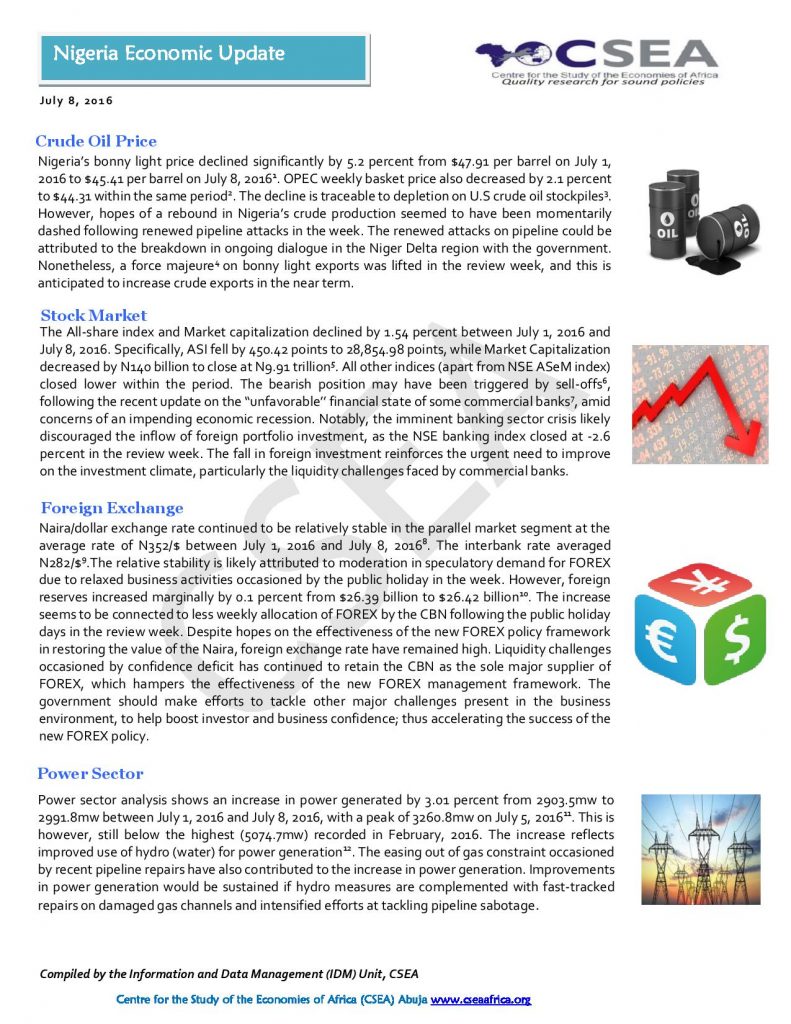Macroeconomic Report & Economic Updates

July 14, 2016
Nigeria Economic Update (Issue 30)
Power sector analysis shows an increase in
power generated by 3.01 percent from 2903.5mw to 2991.8mw between July 1, 2016
and July 8, 2016, with a peak of 3260.8mw on July 5, 2016. This is
however, still below the highest (5074.7mw) recorded in February, 2016. The
increase reflects improved use of hydro (water) for power generation.
The easing out of gas constraint occasioned by recent pipeline repairs have
also contributed to the increase in power generation. Improvements in power
generation would be sustained if hydro measures are complemented with
fast-tracked repairs on damaged gas channels and intensified efforts at
tackling pipeline sabotage.
Related
Nigeria Economic Update (Issue 3)
The
Nigeria stock market indices; All Share Index (ASI) and Market Capitalization
declined by 2.4 percent to close at 26537.36 points and N9.12 trillion
respectively at the end of the trade session this week8 The decline
in the indices, which is attributed to the low subscription for stocks in the
market, led to the partnership between Security and Exchange Commission (SEC)
and Debt Management Office (DMO) to salvage the financial system.
Purchasing Managers Index
Purchasing Managers Index: The level of business activities declined sharply in the first half of 2016 on the account of weak economic performance. Particularly, the issues surrounding exchange rates
Nigeria Economic Update (Issue 6)
The
nations foreign reserves have been on a steady rise. In the review week,
reserves increased by $415.2 million from $28.3 billion on February 3, 2017 to
$28.8 billion on February 10, 2017. The increase is likely the
reflection of a sustained crude oil revenue complemented by moderating global
crude oil price and increasing domestic production. This should help strengthen
the ability of the CBN to foster forex liquidity, and thus help maintain
stability in the domestic forex market. If sustained, it should also help
improve the value of the naira overtime. Hence, the government should implement
proactive and effective policy strategies to, not only, sustain improvements in
oil revenue but also boost non-oil revenue.
